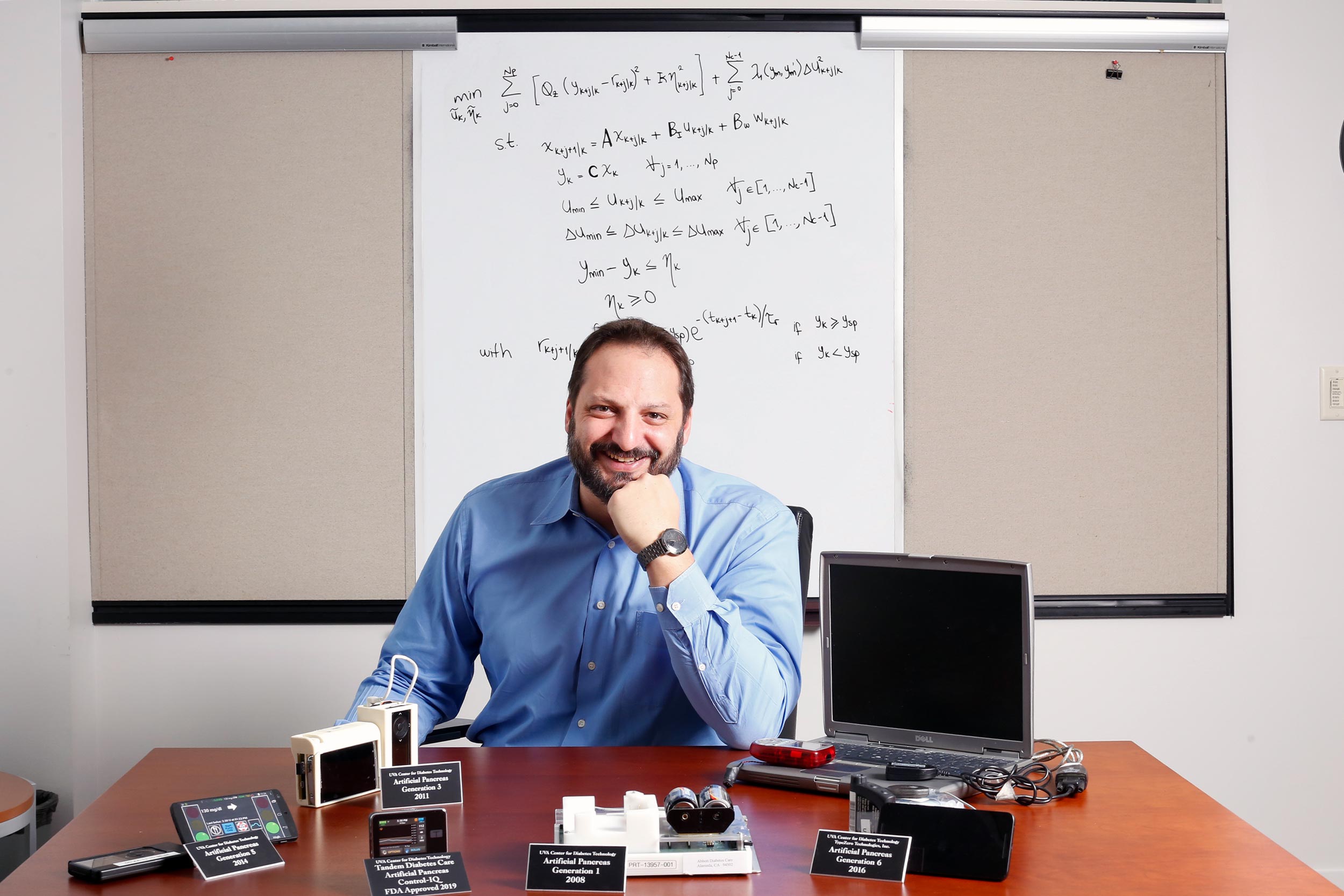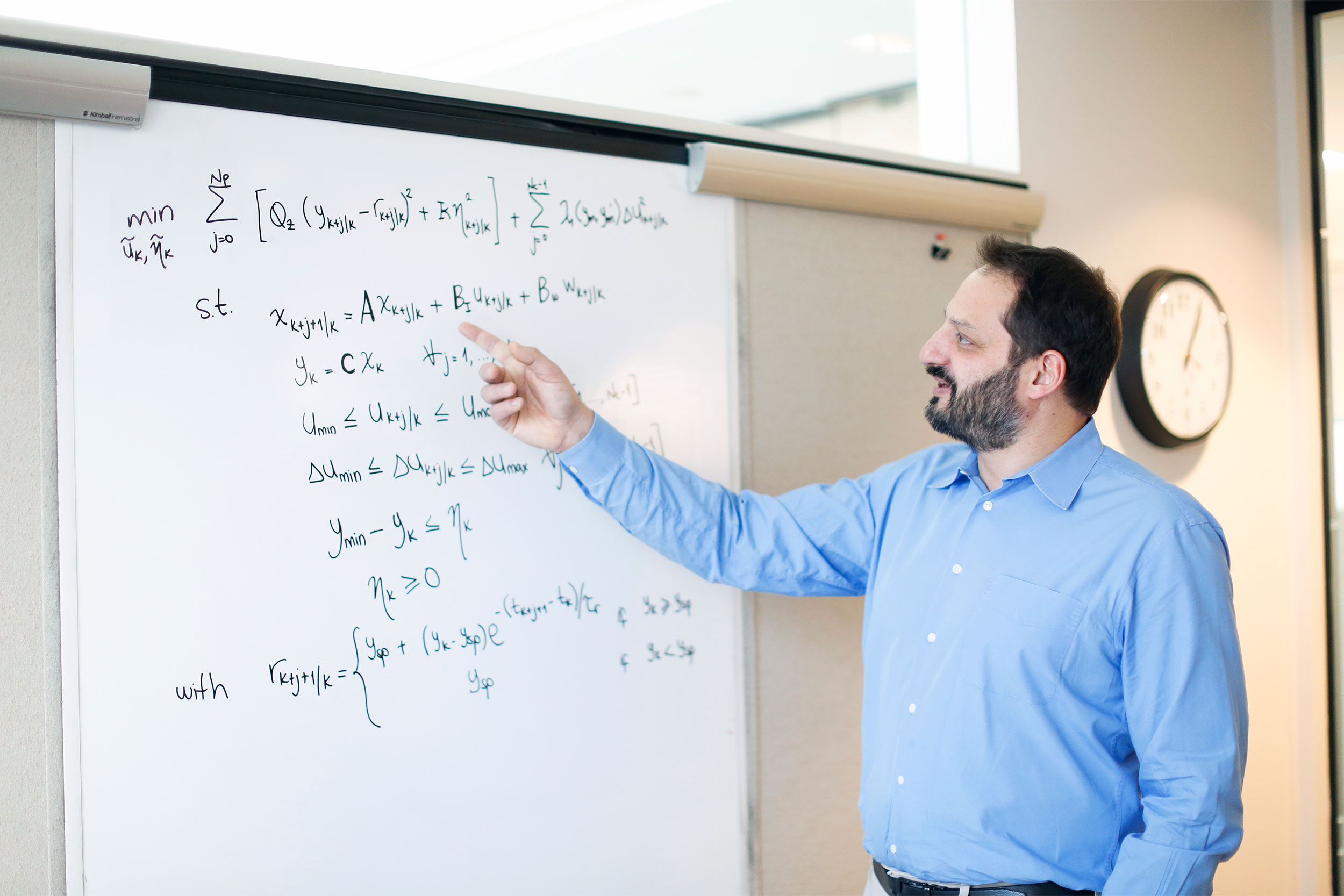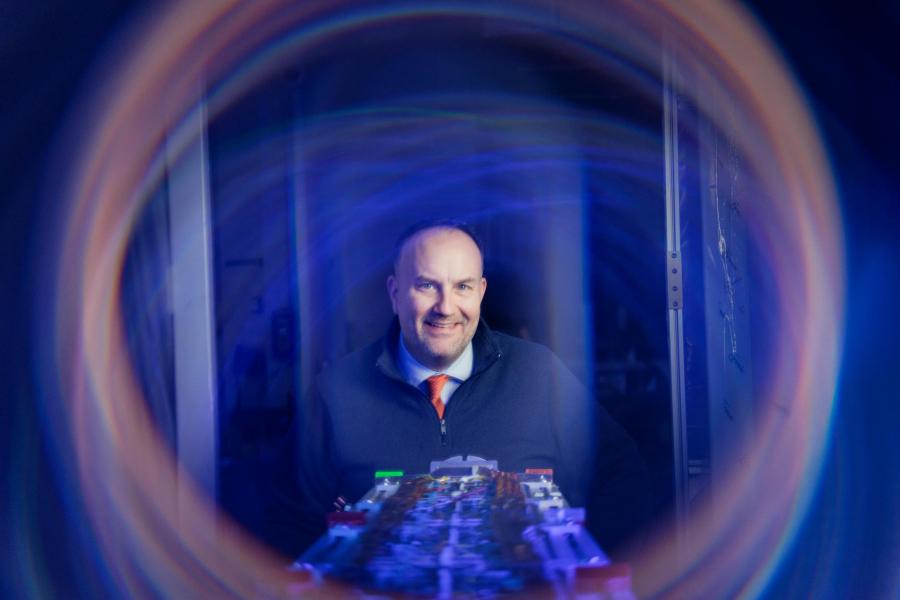Changing the Game
After returning from a conference in 2006, Kovatchev told Breton about someone at the event who believed the idea for an artificial pancreas wasn’t possible. “That is the best way you can make Boris do something,” said Breton, smiling. “He came back and we started working on it.”
The big question was whether sensors could be used to dose insulin.
Neither Breton nor Kovatchev had any experience in animal models or research, which left them in a bind since they needed to generate data that could show that what they wanted to do was safe for humans.
Amazingly, Breton and Kovatchev’s team found a work-around. They created a computer simulation that could replace animal testing. And when the FDA approved it, it was a game-changer for diabetes research. What once took five to 10 years now only took a couple months.
“All of a sudden you could go and test something on a computer and then test it in a human being a few months later,” Breton said. “We completely bypassed that whole step.”
In 2008, the first human clinical trial of the artificial pancreas commenced under the guidance of Dr. Stacey Anderson.
“It was awesome,” Breton said. “There were some grueling sessions where you don’t sleep, you’re stressed out trying to make sure everything is working because you don’t want to hurt anybody, but it was incredibly exciting.
“I loved getting real data, not just playing with a computer – actually running clinical trials with human beings and talking to them. For an engineer, it was pretty awesome.”
The device, at that point, was primitive. With long cords and a clunkiness that made transport difficult, it was, in Breton’s words, a “Frankenstein lab monster.”
But in 2012, Breton and Kovatchev, with former UVA faculty members Steve Patek and Patrick Keith-Hynes, figured out how to program their algorithm into a smartphone.
“Now we had a device that was portable,” Breton said. “There was a hint of, ‘This could be real. This could be something that people could use.’ They could have an app on their smartphone that controls their insulin pump.
“That got us thinking that this wasn’t completely an academic exercise anymore.”
Enter UVA LVG.
The University’s technology transfer office connected the team with two of its entrepreneurs in residence, Jeff Keller and Chad Rogers, who, in turn, helped them obtain patents for the device and form a startup company called TypeZero Technologies.
Soon after, TypeZero and its six co-founders were able to license the device, now known commercially as the t:slim X2 insulin pump with Control-IQ, to Tandem Diabetes Care, a pump manufacturer.
In 2018, TypeZero was purchased by DexCom Inc., the leader in glucose monitoring for people with diabetes.
Today, the fruits of Breton’s labor are helping people with diabetes everywhere.
“Our little algorithm is now probably in 400,000 devices around the world, controlling the insulin of 400,000 people from the age of 2 to 98 years old,” Breton said, “and that’s very special because I had the opportunity to meet many of these people and hear how this work has impacted their lives. That has been an incredible high.”
Breton looks back fondly on the ski trips and visits to summer camps that he made in order to test the device in high-energy environments with kids from across the country.
So do the kids.
One of them, Benjamin Motta, was so impressed by Breton that he came to UVA and is now working as an intern at the Center for Diabetes because of him. For his undergraduate admissions essay, the Fredericksburg native wrote about how much Breton and his colleagues inspired him.
“They are not just a bunch of faceless lab scientists who make new discoveries,” said Motta, a third-year student in the School of Engineering and Applied Science. “It’s people who genuinely want to make a difference in the world and how other people are able to live, and who have a genuine fascination with the science behind it all. Seeing that, and especially how it touched my own life, was life-changing.”
Motta recalled the first time he tried a version of the artificial pancreas while on a ski trip with Breton. He had struggled with variable blood sugar ever since he could remember, but now suddenly – despite several hours on the slopes and a meal – it was static.
“It was like magic. It was extraordinary,” Motta said. “As a 12-year-old, it was fascinating to see that kind of engineering happening live … it was incredible.”
To this day, Motta is benefitting from the algorithm Breton helped develop.
“I’ve never had better blood sugar control in my life,” Motta said, “and I know I’m not alone. Marc is making lives better for a massive swath of people across the world.”







